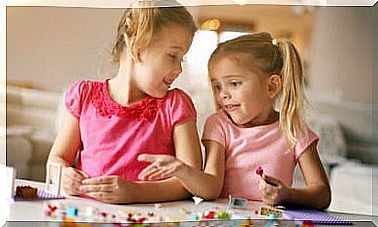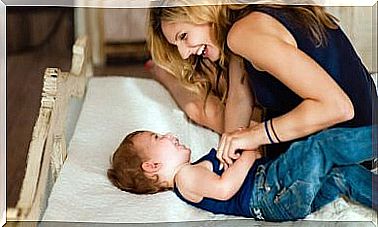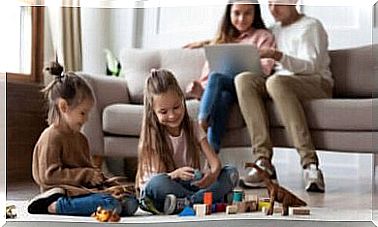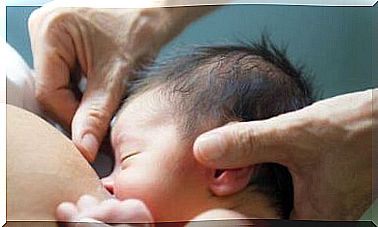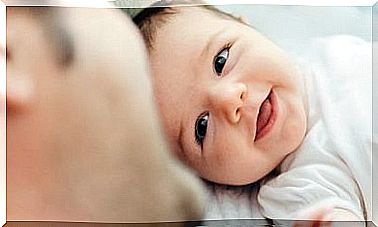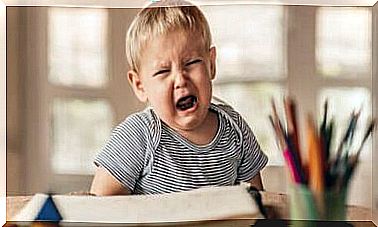The Emotional Wounds Of Childhood: When A Patch Is Not Enough
The emotional wounds of childhood emerge in adulthood as if they had just been experienced. Each child learns to behave, react, feel and think in a certain way. It will be difficult for him to change these ingrained habits once he becomes an adult.
According to some psychology studies, there are common emotional wounds that affect the way we see and cope with life as adults.
The five most common emotional wounds
The fear of rejection
Whether founded or not, it is the fear of not being socially accepted, of losing the affection of the reference figure, among other things. The child who grows up in this fear becomes a person with low self-esteem and low self-love, prone to sacrifice his own opinions to adopt those of others.
Separation anxiety
The fear of being separated from their parents or of feeling lonely and abandoned in childhood leads a child to be a fearful, shy adult with a constant need for affection and therefore insecure and submissive.
The humiliation
A child humiliated in the family and social environment by relatives or classmates who belittle his qualities or make fun of him, criticize and blame him, tends to become an adult at the same time shy and resigned, tyrannical and ruthless.
Injustice
Being the victim of unjust requests or reproaches that are not adequate for his mistakes, makes a child insecure, distrustful of everyone and everything. In adulthood he will turn into a pessimistic and negative person who will over-criticize the people who are part of his life.
The betrayal
It occurs when adults do not keep their promises, disregarding the expectations of the child, who ends up becoming suspicious and not very sociable.
In addition to the wounds already mentioned, there are two other very common ones.
The lack of affection
Lack of affection is one of the most damaging emotional wounds. Those who grow up deprived of affection are conditioned to be unhappy.
Affection is as necessary as food, hygiene, or treatment of disease, as the brain, like the rest of the body, needs to be stimulated and to receive everything it needs.
When children suffer from a lack of affection, they are more prone to contracting diseases of all kinds, have a delay in physical development, have behavioral disorders, are stressed and have difficulty relating to others.
Lack of affection in childhood is one of the emotional wounds that drag into adulthood. It produces adults who are cold, numb, with little empathy and with difficulty in feeling love.
Emotional abandonment
Emotional neglect is another wound that children who have suffered from it carry with them into adulthood as if it were a genetic disease.
Men and women who were deprived of the closeness of their parents as children grow up feeling empty and little appreciated.
Emotional abandonment occurs when parents, either because they don’t have time to be with their children, or because they don’t feel affinity with them, keep them at a distance both physically and spiritually.
This emotional wound is considered to be mistreatment. Like the lack of affection, it is difficult to eradicate after it has accompanied a child all his life. Not infrequently it leads to depression and chronic sadness.
How can I avoid causing emotional injury to my child?
In order not to cause emotional harm to your child, we recommend that you:
- Give him more time, taking care of him as soon as you can and not delegating other people.
- Talk about topics that interest him, discuss his points of view and answer his doubts.
- Never compare him to others. If you want him to behave like everyone else and be the best at homework, invite him to do research and study.
- Addressing his fears without minimizing them.
- Reward him, praise him, emphasize his qualities and applaud his achievements. This way you will increase his self-esteem.
- Give him your time and ask for help from a specialist in dealing with topics such as the death of a family member, the divorce of his parents, his shyness, the truth about his origins (adoption).
These are some general tips for all households. However, the best way not to cause emotional injury to a child is in the hands and behavior of each family.
